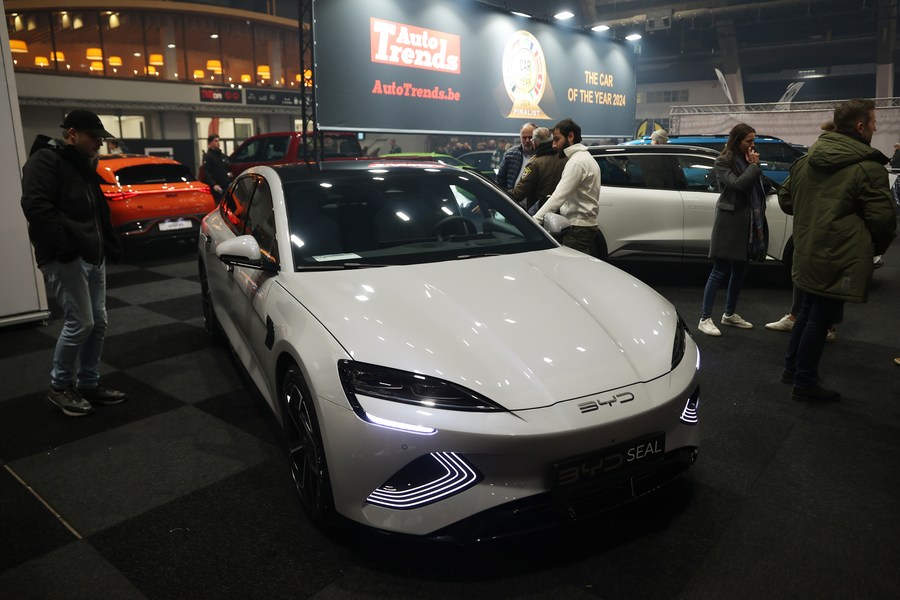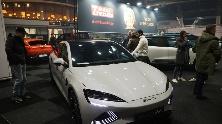
Visitors view a BYD Seal electric car displayed at Brussels Auto Show in Brussels, Belgium, Jan. 17, 2024.(Xinhua/Zhao Dingzhe)
A senior economist at the ING Bank emphasized the growing trend of strategic partnerships between Dutch, European, and Chinese New Energy Vehicle (NEV) manufacturers.
THE HAGUE, March 30 (Xinhua) -- Chinese Electric Vehicle (EV) makers are making noteworthy progress in the Dutch market, according to a senior economist at the ING Bank.
During a recent interview with Xinhua, Rico Luman, Senior Economist of Transport, Logistics, and automotive at ING Bank, highlighted the growing presence of Chinese Battery Electric Vehicles (BEVs) in the Netherlands. He noted that BEVs from Chinese manufacturers accounted for approximately 8 percent of total BEV registrations during the first two months of this year. This marks a slight increase from 7 percent reported in the same period of last year.
One standout performer in this market is BYD, a multinational company operating in the automotive and renewable energy sectors. BYD is now the largest Chinese brand in the Dutch BEV market, enjoying a 2 percent market share.
Although higher import tariffs are on the horizon, Chinese automakers have the opportunity to increase their market share in the Netherlands, said Luman, noting that Chinese manufacturers could retain a cost advantage and start car production in Europe, just like what BYD plans to do in Hungary.

A man tries an XPENG electric vehicle at the Swedish eCarExpo 2023 in Stockholm, Sweden, on Feb. 3, 2023. (Photo by Wei Xuechao/Xinhua)
Furthermore, Luman emphasized the growing trend of strategic partnerships between Dutch, European, and Chinese New Energy Vehicle (NEV) manufacturers. He cited Volkswagen's recent collaboration with Xpeng as a notable example. In February, Volkswagen agreed to a strategic technical collaboration with XPeng to develop two intelligent connected vehicle models for the Chinese market.
Looking ahead, Luman noted a shift towards catering to middle-class drivers rather than early adopters, driving demand for more affordable and accessible EV options. While hybrids may see a resurgence in the short term, Luman said that BEVs will continue to dominate the future automotive landscape.
On a personal level, Luman expressed his interest in trying out Chinese NEV himself. He stated that he had the chance to see several models and was especially intrigued by the design.




 A single purchase
A single purchase









